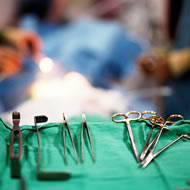 Rotating through a variety of hospitals and clinics, the residency strives to create a balanced and comprehensive plastic surgery training program. We have incorporated the best of both worlds: university based training and private practice exposure. The rotations are planned to offer an increase in responsibility during the three years of training. Each of the hospitals has a subspecialty area of interest, which allows the resident to focus their training.
Rotating through a variety of hospitals and clinics, the residency strives to create a balanced and comprehensive plastic surgery training program. We have incorporated the best of both worlds: university based training and private practice exposure. The rotations are planned to offer an increase in responsibility during the three years of training. Each of the hospitals has a subspecialty area of interest, which allows the resident to focus their training.
During all rotations the educational philosophy is the same. It is that of wide latitude in intellectual inquiry but very close supervision of specific patient care with gradual assumption of clinical decision-making and operative responsibility. Two training methods are fundamental to this philosophy, one for cognitive activities and one for technical matters.
The first is that in all cognitive activities the resident is required to "make a plan" prior to discussing the problem with the attending. Basic core knowledge is required for this activity and teaching of this material will be performed on a daily basis utilizing patient examples. Attendings will not dictate diagnostic or therapeutic plans. The resident "makes a plan" which is then discussed with the attending and together a treatment algorithm is created. This method of "making a plan" and then defending it against the critique of the attending physician trains the resident and permits him to assume increasing levels of independence. It is the goal that at the completion of his/her training the resident will have made sufficient independent decisions (under faculty supervision) that he/she can easily assume the position of an independent physician. This philosophy holds for all patients on the wards, in the clinics, pre- and postoperatively, and throughout the program.
